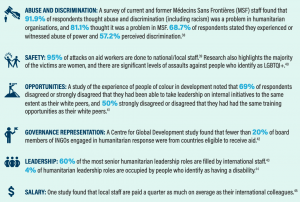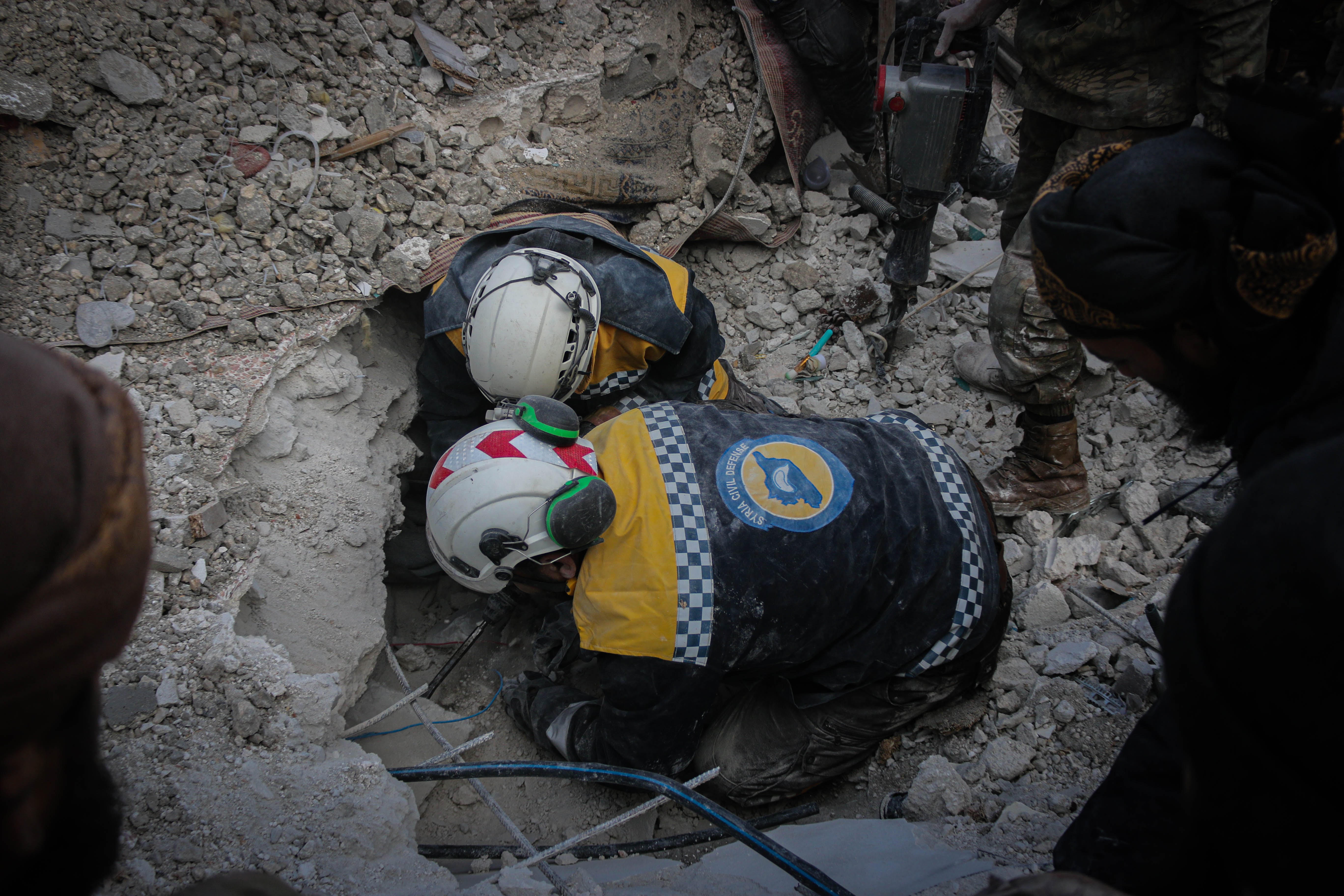Equitable sector blog series, part 2: How can we address inequalities?
This is the second in our blog series on the Achieving a more equitable humanitarian sector: platform paper. If you haven’t read the first one, we recommend you head back to get an outline of the Humanitarian Horizons research program, our partnership-based program funded by DFAT, and an introduction to how the ‘‘Power, People and Local Leadership’ stream aims to shift attitudes to promoting localisation. And if you have, welcome back! This second instalment looks at behaviour change.
The vision of a more equitable humanitarian system is a goal that many humanitarian actors would agree with. So why aren’t we closer already? This research stream and the 2021-2024 Humanitarian Horizons program in general recognise that even when there is a shared sense of purpose, change can be made harder by existing habits and incentives.
Using behavioural science
Behaviours are at the heart of this research stream – some make inequalities worse, others improve them; some maintain or increase power imbalances, others help to offset them. Faced with this complexity, we believe that behavioural science offers a critical way to understand the challenges and help formulate solutions.
Behavioural science is a field that draws on a wide range of academic and professional expertise, including the psychology of individuals and groups, the personal and cultural factors that influence how people make decisions, and the science of how our brains work through instinct, memory, and rational reasoning. Ultimately, behavioural science is about understanding and changing human behaviour. This could be within organisations, among individuals, or across specific target groups.
We aim to draw on behavioural science insights in how we ask our questions, how we develop tools for the sector to use, and how we share the results of our research to maximise impact.
How do inequalities affect people’s experiences in the sector?
Despite a shared commitment to the principle of humanity that motivates humanitarian action, systems and behaviours in the sector continue to reflect strong inequalities. Many of these relate to colonial legacies in the origins of the sector as well as globally.
Some aid workers in the sector face discrimination, inequitable conditions, and different levels of exposure to risk. This is most visible in relation to national staff members, although different elements of a person’s identity can interact to create distinctive experiences. Men of colour, for example, will meet with different opportunities and challenges from white men or from women of colour. These issues manifest in many ways and on multiple levels.

Tackling these issues requires confronting deep-set power dynamics in the sector. Without this difficult but necessary process, technical fixes can only ever be limited and superficial, and may even create new problems of their own.
Changing behaviours and norms
We want to bring fresh approaches to common practices that reinforce inequalities, prejudices, and discrimination. This means looking at specific choices, as well as the expectations, rules and standards that shape those choices (often referred to as ‘norms’).
Some of the questions we want to explore are:
- What are the behaviours and norms that perpetuate inequalities?
- What are the impacts of operational inequalities?
- How might practices be influenced/shifted to reduce biases and create equal operational spaces?
- How might eliminating these operational inequalities contribute to a more equitable sector?
Our research will take on some of the opportunities that we think have most potential to make a difference to people’s experiences, such as:
- Dual pay and rewards systems: Different contexts, legal frameworks and expectations have contributed to systems that sometimes see national staff and international staff within the same organisation receiving very different compensation for their work.
- Staff Poaching: Even with these dual systems, the greater financial resources and name recognition of international NGOs can mean they pull staff from local and national organisations. This practice undermines local capacity and perpetuates power dynamics between international and local organisations.
- Unfair risk distribution and risk mitigation approaches: The ways that risks are assessed and managed for different groups can institutionalise unfair practices, with negative impacts on wellbeing and safety particularly for national staff.
Where to from here?
We know these have remained persistent challenges precisely because they are so hard to resolve. We would love to hear what you’ve tried, what has worked and what hasn’t, and what other areas you might see as needing fresh ideas. And we’ll also be exploring questions about the politics of humanitarian knowledge in the third blog in our series – we’ll hope you’ll want to read on for more!
Get in touch:
Pip Henty phenty@hag.org.au
Eranda Wejewickrama eranda@hag.org.au






